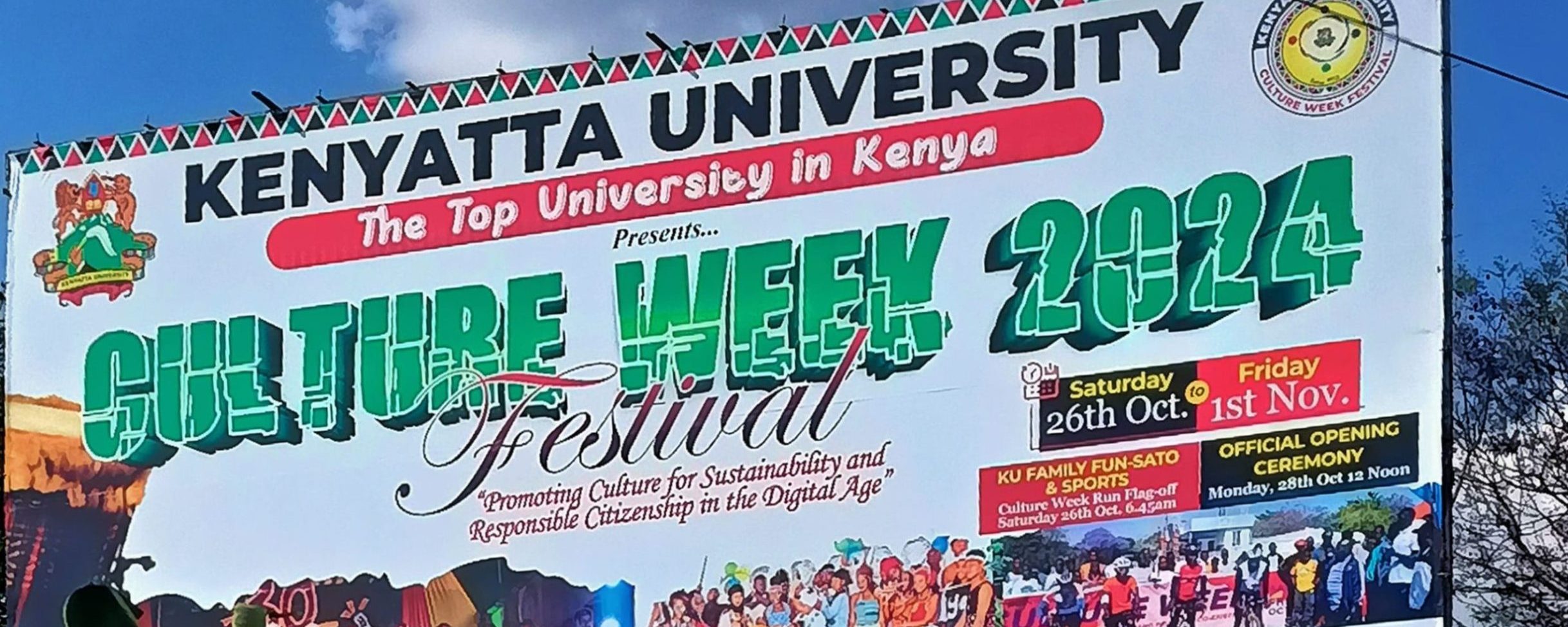The week from October 28th to November 1st was marked by an exciting celebration of the 31st Kenyatta University Culture Week Festival, themed “Promoting Culture for Sustainability and Responsible Citizenship in the Digital Age.” Among the highlights of this festival was a significant discussion hosted by the Communication Authority on October 31st, which focused on “Responsible Citizenship in the Digital Era.” This event served as a timely reminder of the pressing need for responsible engagement in our increasingly digital world.
As the festival revolved around the theme of culture, it provided a vibrant platform for showcasing the rich and diverse talents of students, staff, as well as local and international guests. Through artistic expressions, sports, cultural talks, and exhibitions, attendees engaged with the multifaceted nature of cultural identity. The Communication Authority in one of their show during the week, invited several institutions to do presentations and talks on topics related to the festival theme, with KICTANet contributing valuable insights on the evolution and emerging technologies shaping our digital landscape.
Tracing back to our historical beginnings, the initial modes of communication relied heavily on the simplicity of “the word,” just as described in biblical texts, alongside the physical space that bound communities together. The inherent need to bridge the gap between these two elements sparked the evolution of communication methods over time.
From the rudimentary smoke signals to the physically delivered message, communication has consistently adapted to meet the changing demands of society. The advent of the internet in 1983 marked a pivotal leap into a new era of interconnectedness. This shift has led to a transformation in the ways we exchange information, moving from two-dimensional interactions to complex, multifaceted engagements that blend informational and physical realities – the emerging technologies.
Today, we find ourselves embracing cutting-edge technologies such as the Internet of Things (IoTs), Artificial Intelligence (AI), Virtual Reality (VR), and Augmented Reality (AR). Each of these innovations has not only enhanced our communication capabilities but also revolutionized how we engage with the world around us.
Similarly, modern technologies like blockchain stands out as a hallmark of secure and transparent transactions in decentralized systems, while the rise of social commerce indicates a shift towards more personalized, AI-driven experiences that cater to individual preferences.
As these technologies become seamlessly integrated into our daily lives, their influence extends far beyond mere convenience; they are redefining civic participation, governance, and socio-economic engagement. As we digitize and digitalize every aspect of life, industries like fintech are transforming economic practices and reshaping trade, while social media engagement has created a borderless landscape for communication, giving rise to a new concept of digital citizenship defined by the principles of the internet.
Looking ahead, several key factors will shape the future of the internet, particularly the importance of inclusion, digital accessibility, and digital safety. Ensuring that every individual has access to the internet and digital platforms is essential for unlocking a multitude of opportunities. This commitment to inclusivity will pave the way for a future that empowers all individuals, including those with disabilities, to engage independently and actively in socio-economic activities, further enriching our collective digital experience.
At the same time, dedicated and deliberate efforts must be made to address issues of privacy, cyber security, and digital safety. Protecting individuals from online threats and ensuring their personal information remains secure are critical components of a trustworthy digital landscape. Balancing accessibility with security will be vital in fostering an inclusive and safe online environment for everyone.
Nicodemus Nyakundi is a Digital Accessibility for PWDs Program Officer at KICTANet. He has a background in IT and advocates for the digital inclusion of persons with disabilities.
![]()




